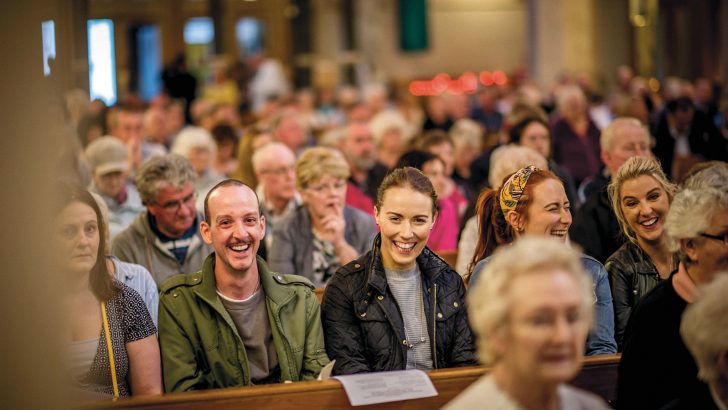The View
What is religion for? We know that NPHET, or at least, Dr Ronan Glynn, then the acting Chief Medical Officer, did not think religion sufficiently important as a source of social contact to allow people to continue with public worship. In response to a question by David Quinn, he said that the aim of level three restrictions is to “decrease contacts in areas that as a society are, relatively speaking, in the context of a pandemic less important”.
Contract
So is religion just a source of social contact? Or a form of social tradition? Is that why exceptions were made to level 5 so that people could visit graves more than 5km away because it was November, a traditional time of remembrance of the dead? And is it to facilitate twice-a-year visitors to Church that we may be allowed to have Mass around Christmas?
In a recent Irish Times column, Sean Moncrieff cheerfully declared that religion can be “a cover to carry out all sorts of appalling acts, in this country and around the world. It can be to protect the ‘institution’. Or it can be vicious tribalism”.
He then expresses puzzlement about people who declare that they lost faith in God because of the sexual abuse of children by clergy: sympathy, but puzzlement, because “they were human actions. Nothing to do with God. Religion only proves what we know already: that people can be great or awful”.
He then says that religions can be useful for bonding communities, “but if God does exist, they seem to be just about the worst way possible to connect with that deity. Religions are essentially bureaucracies, forms of quasi-government that seek to deny the essential messiness of the universe”.
It is important to realise that Sean Moncrieff is not an enemy of religion, more a slightly bemused but sympathetic outsider. He even wrote a book on religions, called God – A User’s Guide. Despite its flippant tone, it shows a real interest in religion as a human phenomenon.
Agnostic
In a 2006 Irish Times interview, he declared himself a fence-sitter or agnostic when it came to belief in God but that his wife was an atheist. Nonetheless, they decided to raise their children as Catholics. They believed that it was better to have a story which you could later change than to have none.
And who could deny that religions prove that people can be great or awful? Bishop Robert Barron was interviewed by John L. Allen of CruxNow about the release of a Vatican report on ex-priest and ex-cardinal Theodore McCarrick, a notorious serial abuser who was allowed to continue his abuse for decades while being promoted within the Church. Bishop Barron referred to it as showing “tragic incompetence” driven by a “self-referential and self-protective” clerical culture. He describes the culture as “sclerotic and dysfunctional”.
That is not too far from Mr Moncrieff’s evaluation that religions are essentially bureaucracies. And yet, Moncrieff would also argue McCarrick’s case is nothing to do with God, just with the awfulness of people.
Catholics would agree in one sense, in that human institutions will always continue to sin, to fail and to damage people to a shameful extent. In this case, the Church allowed people to be abused through unwillingness to deal with a serial predator.
However, taken to its extreme, Mr Moncrieff’s view that religions represent the worst possible way to try to connect with a deity, undermines even the value of them as a bonding mechanism within communities.
There is a strong movement suggesting people should become religious because it is good for you. People who are active members of a religious community tend to live slightly longer, to have better self-control, to have happier marriages and their children are less likely to abuse substances.
Benefits
All that those benefits do, as Timothy Radcliffe OP has said, “is to suggest that the truth claims of Christianity are not trivial, and are worth investigating”. If people do not believe in the truth at the heart of a religion, however, it becomes hollow and crumbles.
The idea that faith in God and religion are entirely different things reflects the radical individualism of our culture. Belief in God is private: religion is just an optional extra that may be actively damaging.
Those who see religion as a useful or less useful form of social bonding or contact, no matter how benign their misapprehension, miss the essential nature of religion to those who believe.
To me, faith is a radical awareness of the depth of God’s love for us, lived out in a messy, sinning community, practised daily, essentially sacramental, and transformative. Our Lord told us that we are members of a body, radically dependent on each other, with Him as our head. We need each other, including the need to worship together.


 Breda O'Brien
Breda O'Brien People attending a pre-Covid Mass at St Eugene’s Cathedral in Derry. Photo: Stephen Latimer
People attending a pre-Covid Mass at St Eugene’s Cathedral in Derry. Photo: Stephen Latimer 